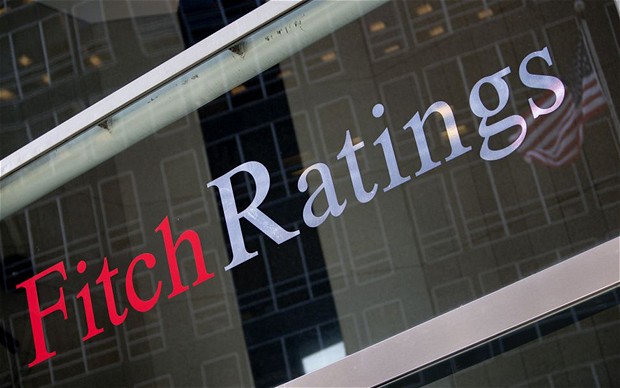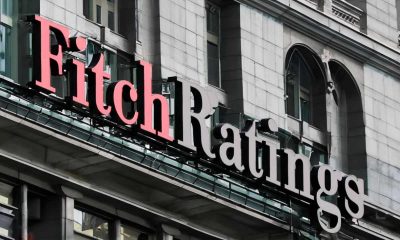By Odunewu Segun
Global financial rating agency, Fitch Ratings has revised the outlook on Zenith, FCMB, Diamond and Union Bank to Negative from Stable, National Daily has gathered
According to the report, the IDR Outlooks on Zenith and GTB (both at B+) have been revised to Negative following a recent similar action on Nigeria’s (B+) Outlook. The other two banks, whose Outlooks have been revised to Negative, are Diamond and FBN/FBNH and the revision reflects their weaker financial profiles.
“We have downgraded the Long-and Short-Term National Ratings of FBN/FBNH and Diamond to ‘BB+ (nga)’ and ‘B(nga)’ respectively to reflect heightened vulnerability of capital due to downside asset quality risks,” Fitch said in a statement.
In the report, the agency also affirmed the Long-Term Issuer Default Ratings (IDRs) of 10 banks and financial institutions—Guaranty Trust Bank Plc, United Bank for Africa, UBA, Diamond Bank Plc, Zenith Bank Plc (Zenith), First Bank of Nigeria Ltd (FBN), Access Bank Plc (Access), Fidelity Bank Plc (Fidelity), Union Bank Plc (Union) First City Monument Bank Limited (FCMB), Wema Bank Plc (Wema) and the bank holding company, FBN Holdings Plc (FBNH).
The National Ratings of Stanbic IBTC Bank Plc (SIBTC), as well as its bank holding company, Stanbic IBTC Holdings Plc (SIBTCH), National Daily gathered, are also affirmed.
Fitch is monitoring the banks’ ability to meet maturing external obligations given current difficult market conditions and limited supply of foreign currency from the Central Bank of Nigeria (CBN).
National Daily gathered that the Negative Outlooks on the banks Long-Term IDRs reflect Fitch’s view that they cannot be rated above the sovereign due to the close correlation between the domestic operating environment and their credit profiles, including large holdings of government securities.
Nigeria’s operating environment continues to be affected by the oil price shock, slow GDP growth, continuing pressure on the naira, scarcity of hard currency in the FX interbank market and policy uncertainty, according to Fitch.
Fitch notes that foreign currency-adjusted ‘normalised’ operating profit, although still healthy, is vulnerable to rising loan impairment charges (LICs). As a consequence, the banks VRs remain in the highly speculative ‘b’ range. The new foreign-exchange regime has provided limited respite in accessing foreign currency in the interbank market.
FX forward contracts provided by the CBN since June 2016 have helped the banks access foreign currency to reduce a large backlog of overdue trade finance obligations.
These were either extended or refinanced with international correspondent banks. Further depreciation of the naira against the US dollar would negatively impact banks’ regulatory capital ratios due to the translation effect of risk-weighted assets (RWAs).

 Football2 days ago
Football2 days ago
 Business1 week ago
Business1 week ago
 Business1 week ago
Business1 week ago
 Education1 week ago
Education1 week ago
 Crime1 week ago
Crime1 week ago
 Covid-191 week ago
Covid-191 week ago
 Latest6 days ago
Latest6 days ago
 Business1 week ago
Business1 week ago









